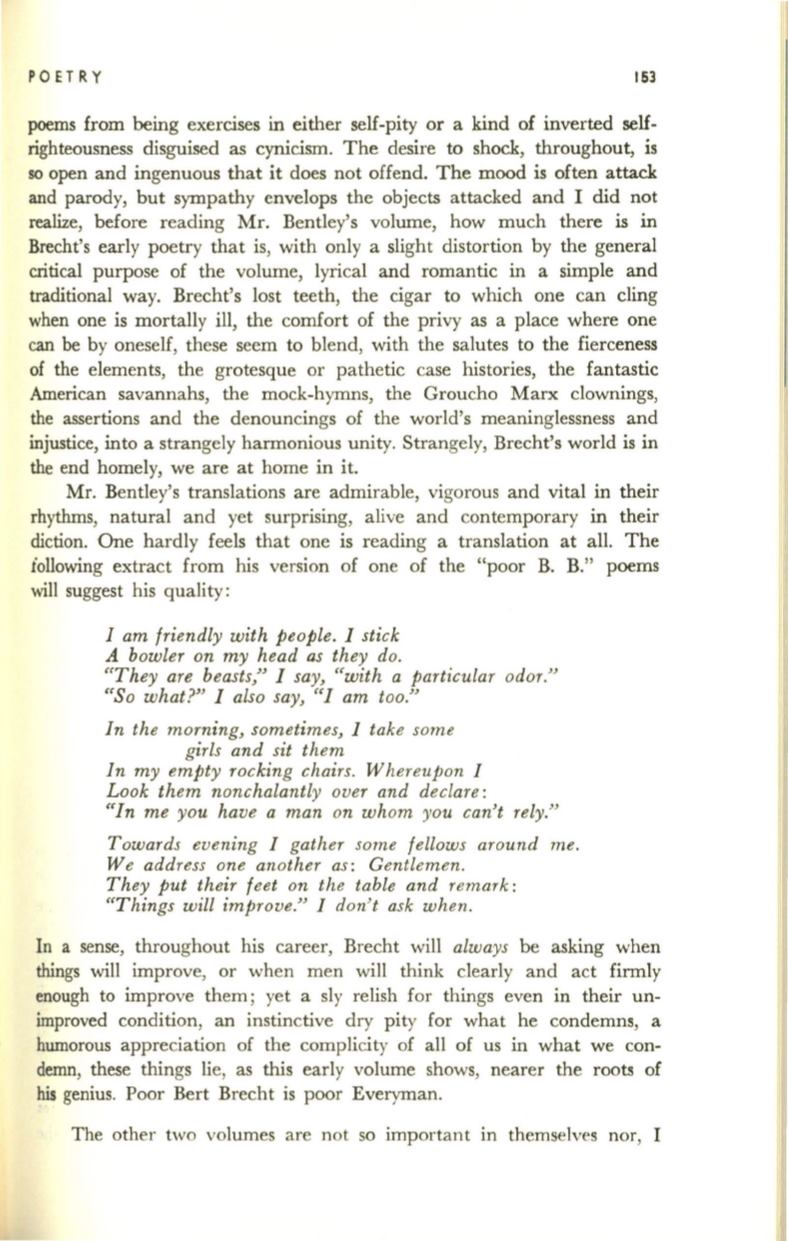
POETRY
163
poems from being exercises in either self-pity or a kind of inverted self–
righteousness disguised as cynicism. The desire to shock, throughout, is
so open and ingenuous that it does not offend. The mood is often attack
and parody, but sympathy envelops the objects attacked and I did not
realize, before reading Mr. Bentley's volume, how much there
is
in
Brecht's early poetry that is, with only a slight distortion by the general
critical purpose of the volume, lyrical and romantic in a simple and
traditional way. Brecht's lost teeth, the cigar to which one can cling
when one is mortally ill, the comfort of the privy as a place where one
can be by oneself, these seem to blend, with the salutes to the fierceness
of the elements, the grotesque or pathetic case histories, the fantastic
American savannahs, the mock-hymns, the Groucho Marx clownings,
the assertions and the denouncings of the world's meaninglessness and
injustice, into a strangely harmonious unity. Strangely, Brecht's world is in
the end homely, we are at home in it.
Mr. Bentley's translations are admirable, vigorous and vital in their
rhythms, natural and yet surprising, alive and contemporary in their
diction. One hardly feels that one is reading a translation at all. The
following extract from his version of one of the "poor
B.
B." poems
will suggest his quality:
I am friendly with people. I stick
A bowler on my head as they do.
«They are beasts," I say, «with a particular odor."
«So what?" I also say, «I am too."
In the morning, sometimes, I take some
girls and sit them
In my empty rocking chairs. Whereupon I
Look them nonchalantly over and declare:
«In me you have a man on whom you can't rely."
Towards evening I gather some fellows around me.
We address one another as: Gentlemen.
They put their feet on the table and remark:
«Things will improve." I don't ask when.
In a sense, throughout his career, Brecht will
always
be asking when
things will improve, or when men will think clearly and act firmly
enough to improve them ; yet a sly relish for things even in their un–
improved condition, an instinctive dry pity for what he condemns, a
humorous appreciation of the complicity of all of us in what we con–
demn, these things lie, as this early volume shows, nearer the roots of
his
genius. Poor Bert Brecht is poor Everyman.
The other two volumes are not so importan t
In
themselves nor, I


